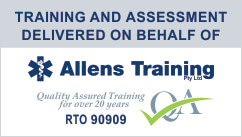First Aid at car Crashes
First Aid Training will be able to help you work through certain scenarios especially at car crashes. Is it time to get trained? Have you thought about attending a first aid training course to update your certification?
Simple Instruction is taking bookings online through our fast and easy Allens Training new platform Training Desk www.simpleinstruction.com.au for both HLTAID003 Provide First Aid (formerly known as Senior first aid and Apply First Aid) and HLTAID001 Provide CPR. All courses are conducted at the Dee Why RSL on the Northern Beaches of Sydney.
A Tasmania Police officer has revealed a common mistake people make when responding to the scene of a crash.
Divisional Acting Sergeant Ann Edge, from Southern Road Public Order Services, explained to Yahoo News Australia what you should do if you happen to come across an accident.
Should I stop for a road accident?
Sgt Edge said you should stop at the scene of an accident if you feel up to it, and it’s safe to do so.
“If you feel confident, then stop,” she said.
“But make sure you ask yourself: ‘is it safe?’”
‘Scan your surroundings’
You need to ensure you check your environment before and after you pull over.
“Are there fallen trees or power lines near the crash scene? Is the car down an embankment you can’t reach?” Sgt Edge said.
“Scan your surroundings as your safety is paramount.”

Also make sure you’re not stopped on the road. This is especially important on highways where vehicles are travelling much faster.
Pull over your vehicle to a point where it’s not obstructing traffic and you can safely step out.
Turn the hazard lights on.
When asked if Sgt Edge had ever experienced anyone being hit by a car responding to a crash she said “no” but she had “heard of it”.
NSW Roads and Maritime Services also advises if a vehicle is on fire to try and turn the ignition off.
What should I do after I have stopped at the crash scene?
You should call triple-0 after stopping at the scene.
“They’ll put you through to police, fire or ambulance,” Sgt Edge said.
“You’ll need to tell them where you are – what street you’re on.”
If you’re stopped in a rural area, you might need to point out a landmark.

This can be a restaurant, a sign or some kind of building – anything which gives emergency services an idea of where the scene is.
“The operator will then ask lots of questions,” Sgt Edge said.
“But they give good advice and can be a calming influence.”
If you have decided to check on the person at the scene, they may ask you questions about them too and provide instructions.
“They might ask you if they’re conscious or not, and tell you whether that person should be moved,” Sgt Edge said.
“They’ll also offer reassurance – they might tell you ‘police are 15 minutes away’ or someone’s not far off from helping.”

Can I get in trouble for helping someone at a crash?
Most traffic crashes, at least ones reported to police, can come under investigation from authorities. They may want to investigate how the crash was caused or if the driver was distracted on the road.
Sometimes it can lead to a criminal investigation.
- The new Australian road rules being introduced in 2020
- The little-known parking rules you could be fined for
- The bizarre Australian road rules that drivers are most likely breaking
People might be concerned about reprisal from police for getting involved, however Sgt Edge said no one should be worried about trying to help someone.
“Let’s say someone comes across a car seeing smoke coming out and fearing it might explode,” she said.
“Where someone is acting in good faith to provide assistance they won’t be criticised by police.”
The ‘only’ mistake people make when stopping at the crash
There’s a common mistake people make when pulling over at the scene of a crash.
“The only mistake people make is trying to stop or move traffic,” Sgt Edge said.
“Police are trained to move traffic as are firefighters.
“We also tend to set up further back with our lights on – that way people who are heading in the direction of the scene think, ‘I might need to slow down’.”

Sgt Edge said the other issue people might not have considered is lighting.
“At night, it can be really hard to see people in dark clothes on the road,” she said.
“Police officers have high-vis too. It makes us easier to see at night on dark roads.”
Managing traffic should be left to police or firefighters.
‘Don’t beat yourself up’
Not everyone is an action hero.
If you don’t feel like you can help someone out of a car wreck or at the scene of an accident you shouldn’t feel guilty about it.
“People shouldn’t beat themselves up for not helping if they don’t feel up to it,” Sgt Edge said.
“It can be very daunting to get out of the car and go check for signs of life.”

However, if you would like to be prepared for an accident or any kind of emergency, Sgt Edge advised learning CPR or first aid.
You can sign up to learn first aid and other skills through Red Cross.
Sgt Edge added anyone who’s been involved in an accident, witnessed one or provided assistance has access to free counselling.
In Tasmania, it’s known as Road Trauma Support Tasmania.
Victoria also offers its own counselling services for traffic crashes as does South Australia.
NSW also offers a variety of counselling options.
